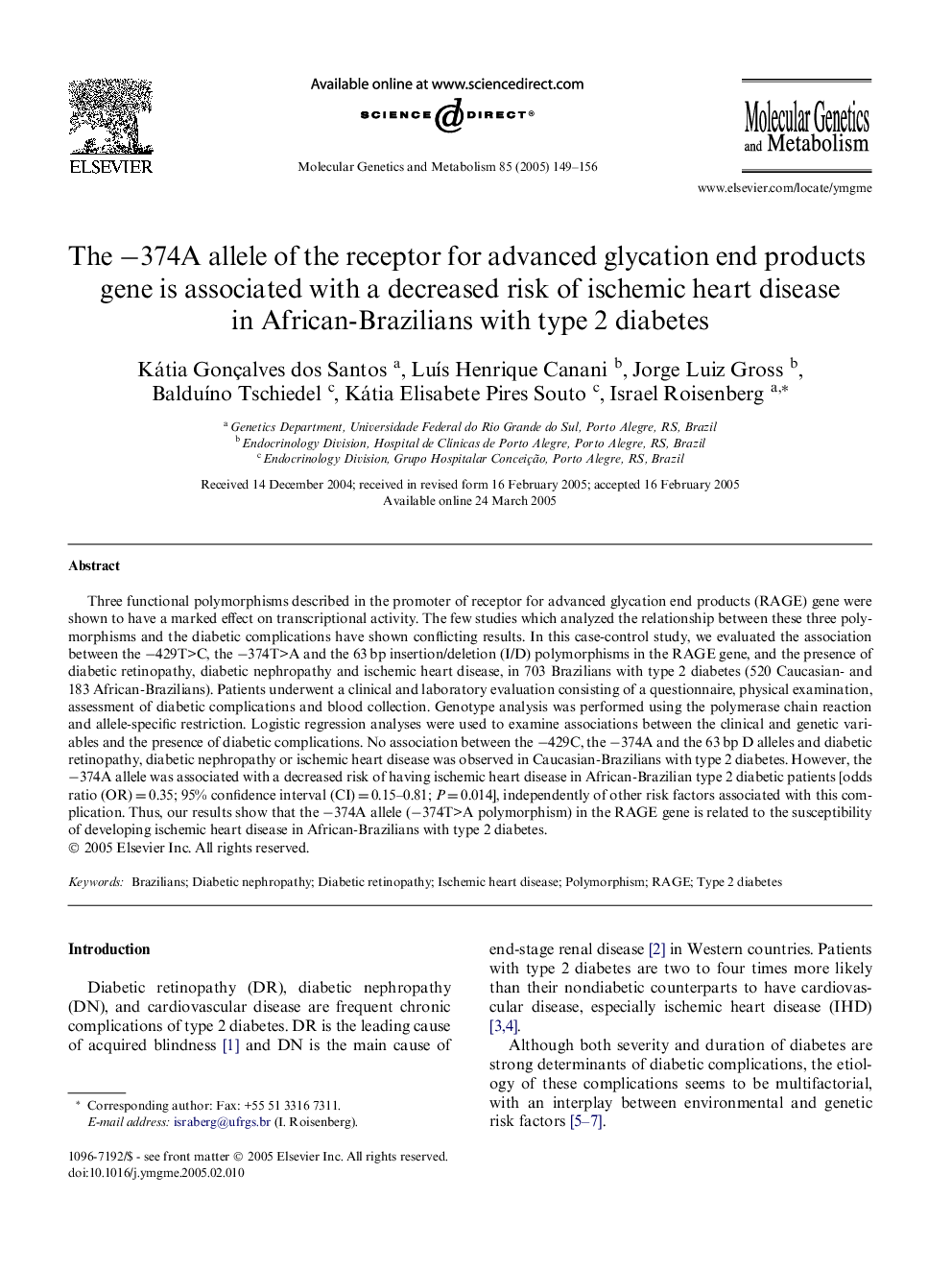| Article ID | Journal | Published Year | Pages | File Type |
|---|---|---|---|---|
| 10834951 | Molecular Genetics and Metabolism | 2005 | 8 Pages |
Abstract
Three functional polymorphisms described in the promoter of receptor for advanced glycation end products (RAGE) gene were shown to have a marked effect on transcriptional activity. The few studies which analyzed the relationship between these three polymorphisms and the diabetic complications have shown conflicting results. In this case-control study, we evaluated the association between the â429T>C, the â374T>A and the 63Â bp insertion/deletion (I/D) polymorphisms in the RAGE gene, and the presence of diabetic retinopathy, diabetic nephropathy and ischemic heart disease, in 703 Brazilians with type 2 diabetes (520 Caucasian- and 183 African-Brazilians). Patients underwent a clinical and laboratory evaluation consisting of a questionnaire, physical examination, assessment of diabetic complications and blood collection. Genotype analysis was performed using the polymerase chain reaction and allele-specific restriction. Logistic regression analyses were used to examine associations between the clinical and genetic variables and the presence of diabetic complications. No association between the â429C, the â374A and the 63Â bp D alleles and diabetic retinopathy, diabetic nephropathy or ischemic heart disease was observed in Caucasian-Brazilians with type 2 diabetes. However, the â374A allele was associated with a decreased risk of having ischemic heart disease in African-Brazilian type 2 diabetic patients [odds ratio (OR)Â =Â 0.35; 95% confidence interval (CI)Â =Â 0.15-0.81; PÂ =Â 0.014], independently of other risk factors associated with this complication. Thus, our results show that the â374A allele (â374T>A polymorphism) in the RAGE gene is related to the susceptibility of developing ischemic heart disease in African-Brazilians with type 2 diabetes.
Keywords
Related Topics
Life Sciences
Biochemistry, Genetics and Molecular Biology
Biochemistry
Authors
Kátia Gonçalves dos Santos, LuÃs Henrique Canani, Jorge Luiz Gross, BalduÃno Tschiedel, Kátia Elisabete Pires Souto, Israel Roisenberg,
